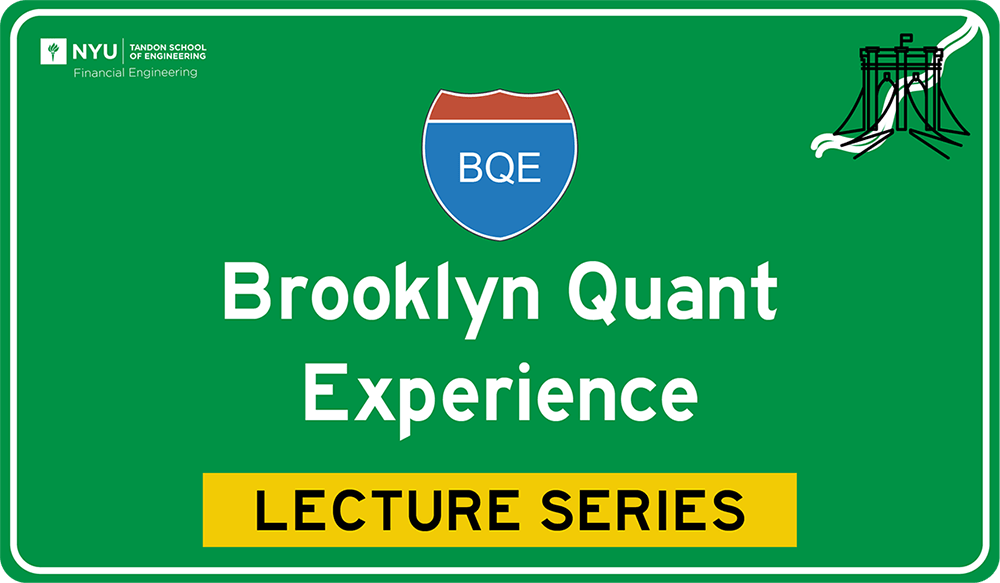
Featuring Machine Learning experts from Cornell, Citi, and more…
You and your colleagues are invited to attend the Cornell Financial Data Science Seminars. Through hybrid talks in Fall 2022, we are excited to collaborate with various guest speakers in highlighting machine learning applications in finance.
All webinars are from 5:30 pm to 6:30 pm ET.
This webinar is free and open to all guests. Registration is required (please RSVP here). You will receive the webinar link and dial-in info upon registration (the confirmation email will come from no-reply@zoom.us).
Abstract:
In recent years, automated market makers (AMMs) and, more specifically, constant function market makers (CFMMs) such as Uniswap, have emerged as the dominant mechanism for trading risky assets on blockchains. On the Ethereum blockchain, for example, such decentralized exchanges are the largest single “application category” implemented through smart contracts, as ranked by resource consumption. Compared to electronic limit order books (LOBs), which are the dominant market structure for traditional, centralized exchange-based electronic markets, CFMMs offer some advantages. First of all, they are efficient computationally. Thus, CFMMs are uniquely suited to the severely computation- and storage-constrained environment of the blockchain. Second, LOBs are not well-suited to a “long-tail” of illiquid assets. This is because they require the participation of active market markers. In contrast, CFMMs mainly rely on passive liquidity providers (LPs).
We consider the market microstructure of CFMMs from the economic perspective of the liquidity providers. In a frictionless, continuous-time setting and in the absence of trading fees, we decompose the return of an LP into a instantaneous market risk component and a non-negative, non-decreasing, and predictable component which we call “loss-versus-rebalancing” (LVR, pronounced “lever”). Market risk can be fully hedged, but once eliminated, LVR remains as a running cost that must be offset by trading fee income in order for liquidity provision to be profitable. We show how LVR can be interpreted in many ways: as the cost of commitment, as the time value for giving up future optionality, as the compensator in a Doob-Meyer decomposition, as an adverse selection cost in the form the profits of arbitrageurs trading against the pool, and as an information cost because the pool does not have access to accurate market prices. LVR is distinct from the more commonly known metric of “impermanent loss” or “divergence loss”; this latter metric is more fundamentally described as “loss-versus-holding” and is not a true running cost. We express LVR simply and in closed-form: instantaneously, it is the scaled product of the variance of prices and the marginal liquidity available in the pool, i.e., LVR is the floating leg of a generalized variance swap. As such, LVR is easily calibrated to market data and specific CFMM structure. LVR provides tradeable insight in both the ex ante and ex post assessment of CFMM LP investment decisions, and can also inform the design of CFMM protocols.
This talk is joint work with Jason Milionis (Columbia CS), Tim Roughgarden (Columbia CS/a16z Crypto), and Anthony Lee Zhang (Chicago Booth).
The paper is available here: https://moallemi.com/ciamac/papers/lvr-2022.pdf
Speaker Bio:
Ciamac C. Moallemi is the William von Mueffling Professor of Business in the Decision, Risk, and Operations Division of the Graduate School of Business at Columbia University, where he has been since 2007. A high school dropout, he received S.B. degrees in Electrical Engineering & Computer Science and in Mathematics from the Massachusetts Institute of Technology (1996). He studied at the University of Cambridge, where he earned a Master of Advanced Study degree in Mathematics (Part III of the Mathematical Tripos), with distinction (1997). He received a Ph.D. in Electrical Engineering from Stanford University (2007). Prior to his doctoral studies, he developed quantitative methods in a number of entrepreneurial ventures: as a partner in a $200 million fixed-income arbitrage hedge fund and as the director of scientific computing at an early-stage drug discovery start-up. He holds editorial positions at the journals Operations Research and Management Science. He is a past recipient of the British Marshall Scholarship (1996), the Benchmark Stanford Graduate Fellowship (2003), first place in the INFORMS Junior Faculty Paper Competition (2011), and the Best Simulation Publication Award of the INFORMS Simulation Society (2014). Aside from his academic work, he regularly consults for fintech companies. His research interests are in the development of mathematical and computational tools for optimal decision making under uncertainty, with a focus on applications areas including market microstructure, quantitative and algorithmic trading, and blockchain technology.
We hope to see you online!
**Please excuse any duplication of this announcement
If you are interested in our past seminars, you are welcome to subscribe to our YouTube Channel and watch our videos!
Upcoming Events
September 16, 2022
Future of Finance Conference
October 25, 2022
Speaker: Yuyu Fan (Alliance Bernstein)
Title of Presentation: TBD
November 8, 2022
Speaker: Kevin Webster
Title of Presentation: TBD
November 29, 2022
Speaker: Chakri Cherukuri (Bloomberg)
Title of Presentation: TBD










